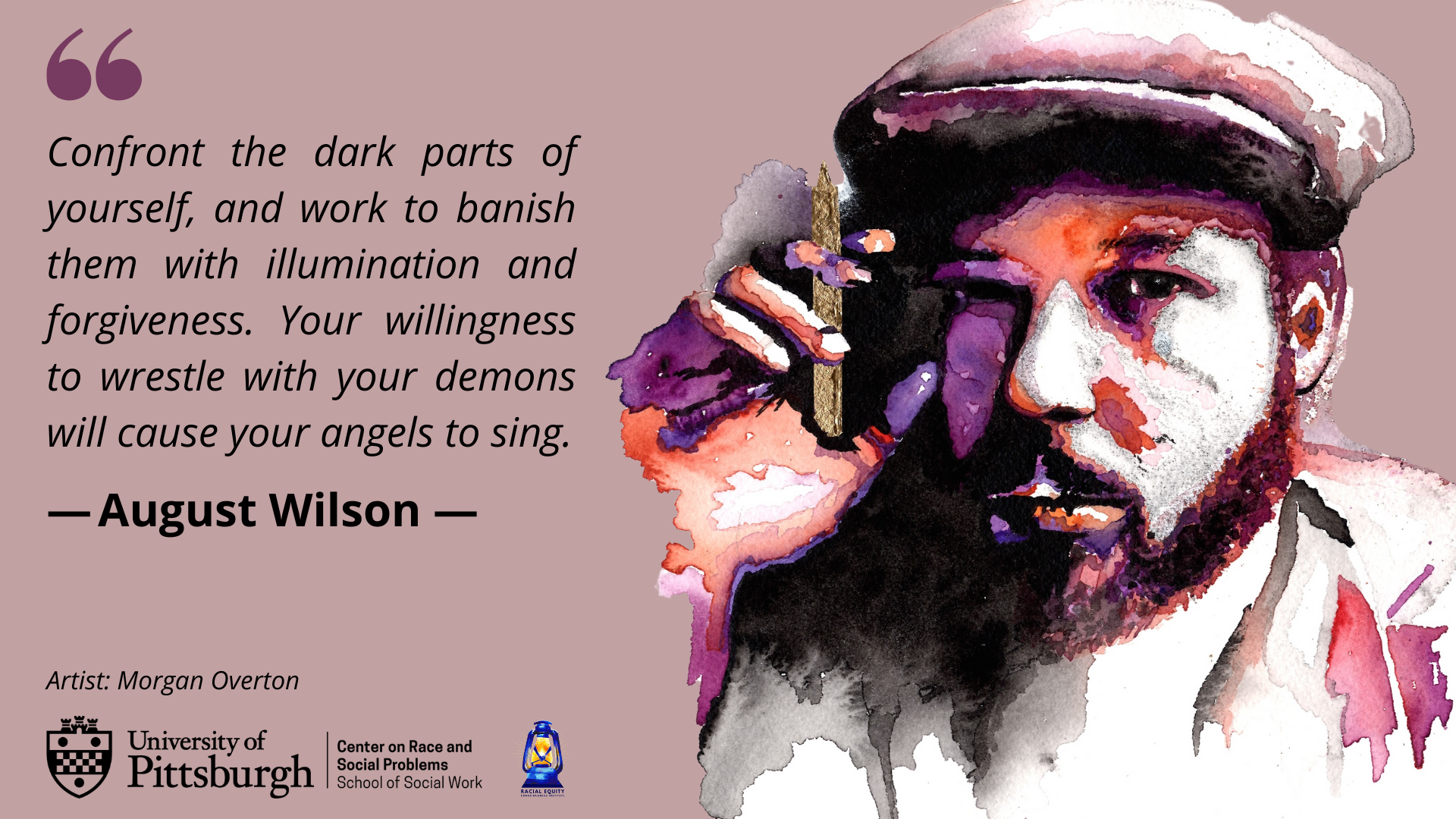
10 Facts About August Wilson
Source: New York Public Radio | The Greene Space
1. Wilson 101
August Wilson is an American playwright best known for his unprecedented cycle of 10 plays that chronicle the 20th century African-American experience. Each play is set in a different decade and collectively became known as the Century Cycle. “Put them all together,” Wilson once said, “and you have a history.”
2. The Century Cycle
Wilson explores a century’s worth of African-American struggle and triumph in his plays, beginning with the complex narrative of freedom at the turn of the century (Gem of the Ocean) and ending with the assimilation and sense of alienation of the 1990s (Radio Golf).
3. The Hill District
All, but one, of Wilson’s plays— Ma Rainey’s Black Bottom — are set in Pittsburgh’s Hill District, the economically depressed neighborhood where Wilson was born in 1945 and spent his early years. “Like most people, I have this sort of love-hate relationship with Pittsburgh,” he once said. “This is my home and at times I miss it and find it tremendously exciting, and other times I want to catch the first thing out that has wheels.”
4. Pulitzer Prizes
Two of Wilson’s plays won the Pulitzer Prize for Drama— Fences (1987) and The Piano Lesson (1990).
5. The Ten Plays
Wilson didn’t actually set out to write a 10-play cycle. He said he wrote Jitney, set in 1971, Fullerton Street set in 1941 and Ma Rainey’s Black Bottom, set in 1927. Wilson said he thought to himself, “‘I’ve written three plays in three different decades, so why don’t I just continue doing that?’”
6. Wilson on Broadway
Nine of Wilson’s plays have been produced in New York City on Broadway, beginning with Ma Rainey’s Black Bottom, which opened in October 1984. To date, Jitney is the only Wilson play that has yet to be produced on Broadway.
7. The Four B’s
August Wilson never formally studied theater. He often explained that he got his education from the four B’s: the blues, the art of painter Romare Bearden and the writing of poet Amiri Baraka and writer/poet Jorge Luis Borges. “The foundation of my playwriting is poetry,” Wilson once said.
8. The Blues and Bessie
Wilson credited blues great Bessie Smith’s “Nobody in Town Can Bake a Sweet Jelly Roll Like Mine” as among the most influential songs in his work. He said hearing it the first time was a defining moment: it made him recognize the poetry in the everyday language of black America and gave him the inspiration and freedom to use that language in his own writing.
9. Wilson’s Audience
Wilson often said he didn’t write for black or white audiences, but rather about the black experience in America. “And contained within that experience, because it is a human experience,” he said, “are all universalities.”
10. Wilson’s Warriors
Wilson had a great impact on the careers of actors who got their start in his plays. As John Lahr, drama critic of the New Yorker, wrote, “His audience appeal single-handedly broke down the wall for other black artists, many of whom would not otherwise be working in the mainstream.”
